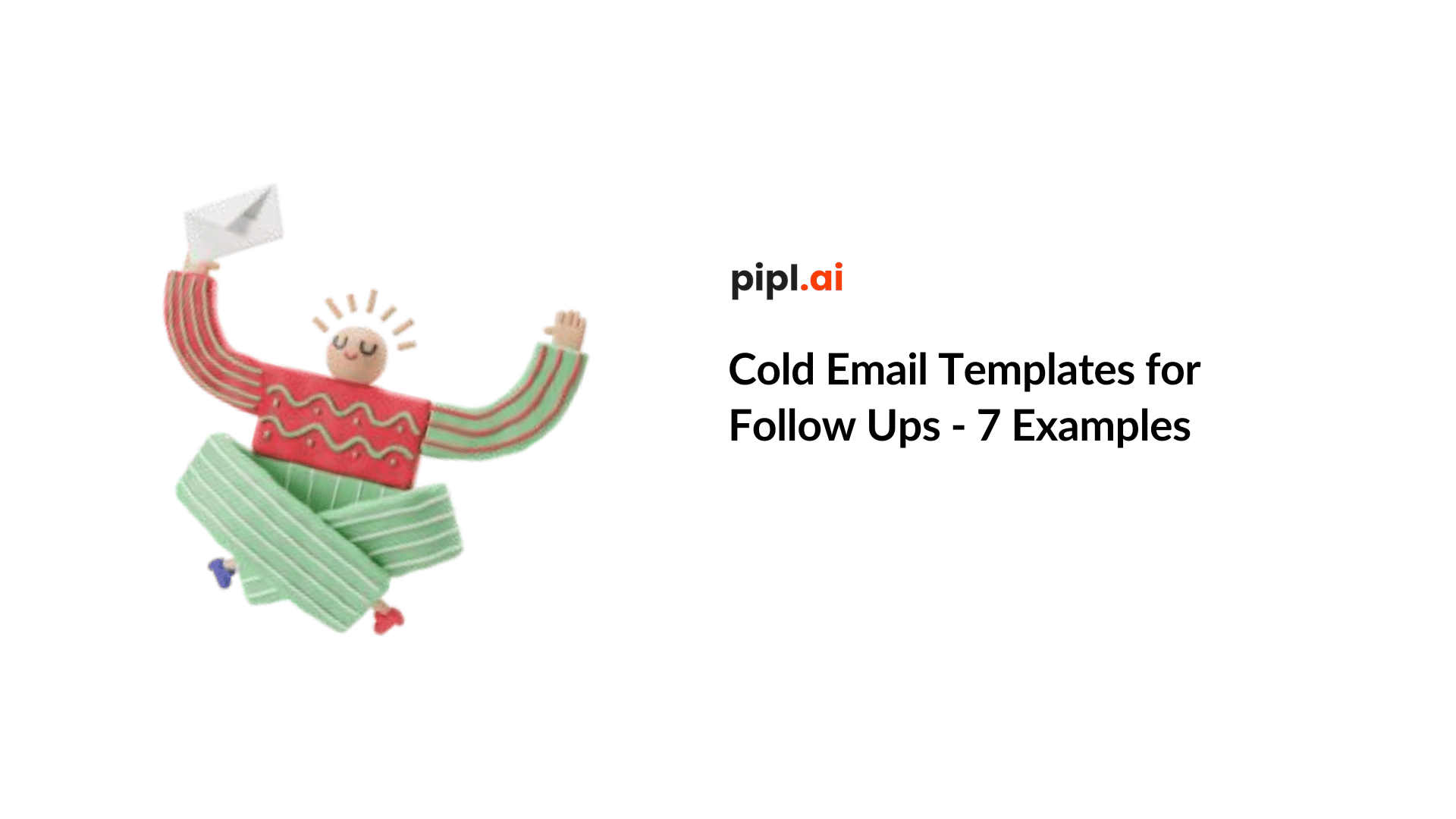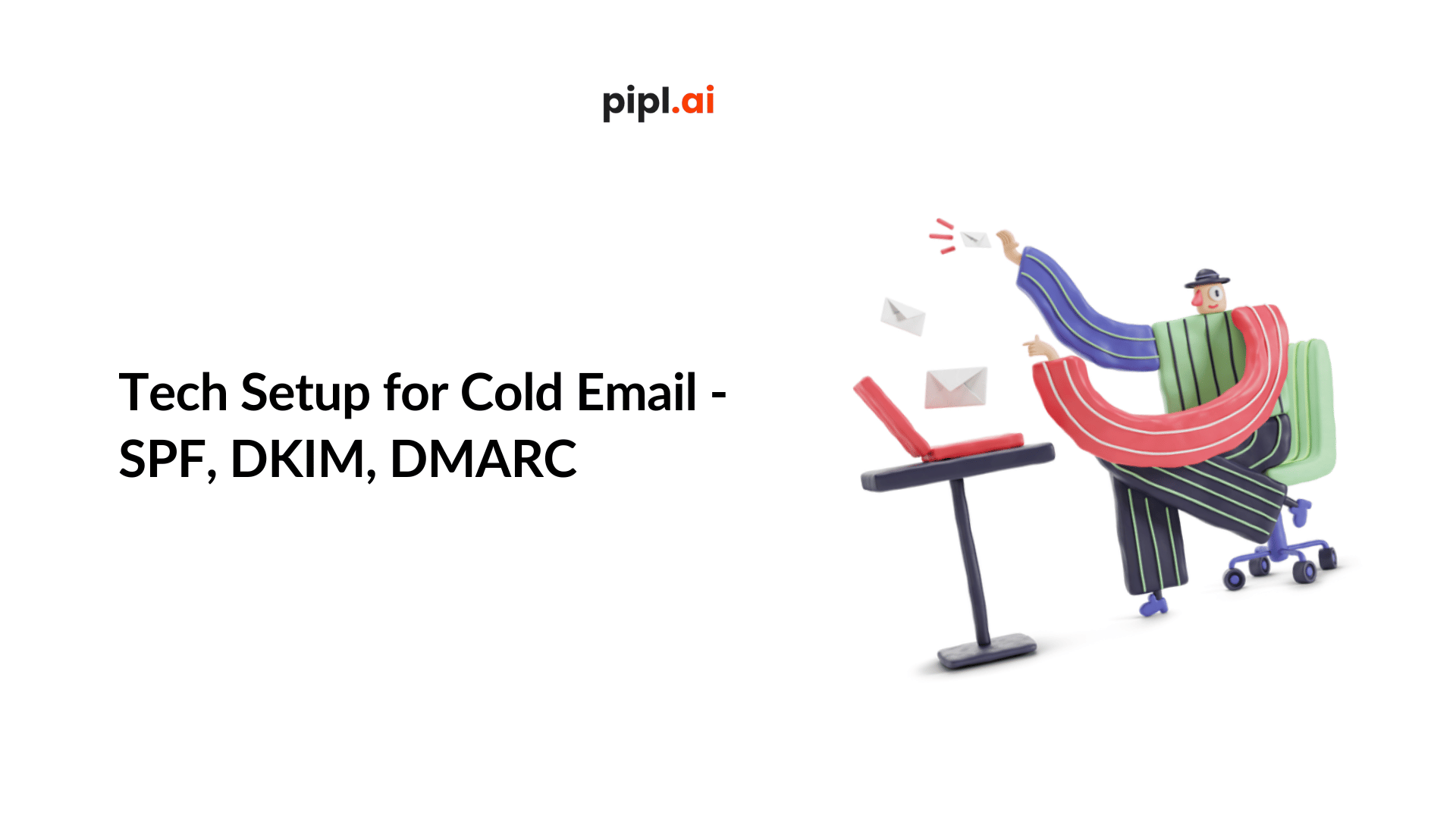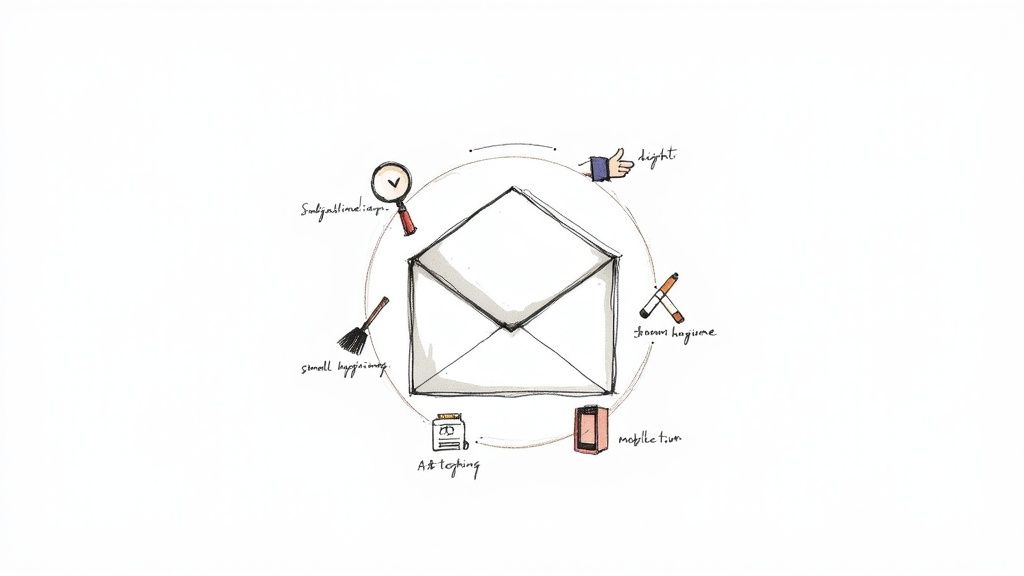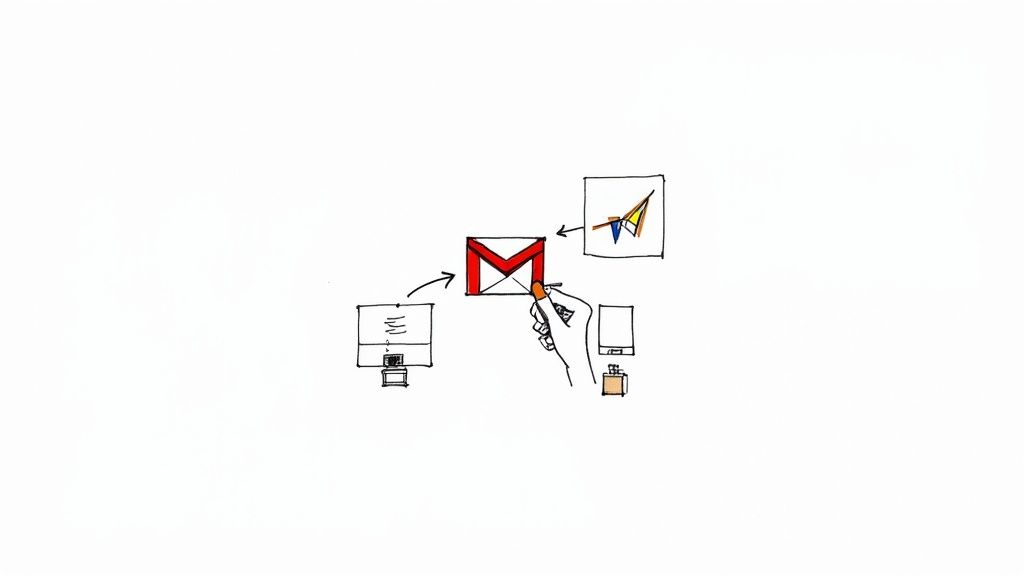Using a generic email like yourbusiness@gmail.com gets the job done, sure, but it’s a bit like running a professional shop out of a pop-up tent. A dedicated email service for business completely changes the game. It gives you a custom domain email (yourname@yourcompany.com), which instantly makes your business look more legitimate and trustworthy to clients. Choosing the right email system for business is a critical step.
Why Your Business Needs a Professional Email
A professional email address isn't just a tiny detail—it's a core part of your brand's identity and your first line of defense, security-wise. It tells customers, partners, and prospects that you're running a serious, established operation. Making the switch from a free, generic email to a paid business service is easily one of the smartest, most impactful investments a new or small business can make. The most popular email provider for personal use may not be the best email for business.
But it goes way beyond just looking the part. Dedicated business email services come packed with a whole suite of tools built for growth, security, and just getting things done more efficiently. These email solutions for business are the true backbone of modern business communication.
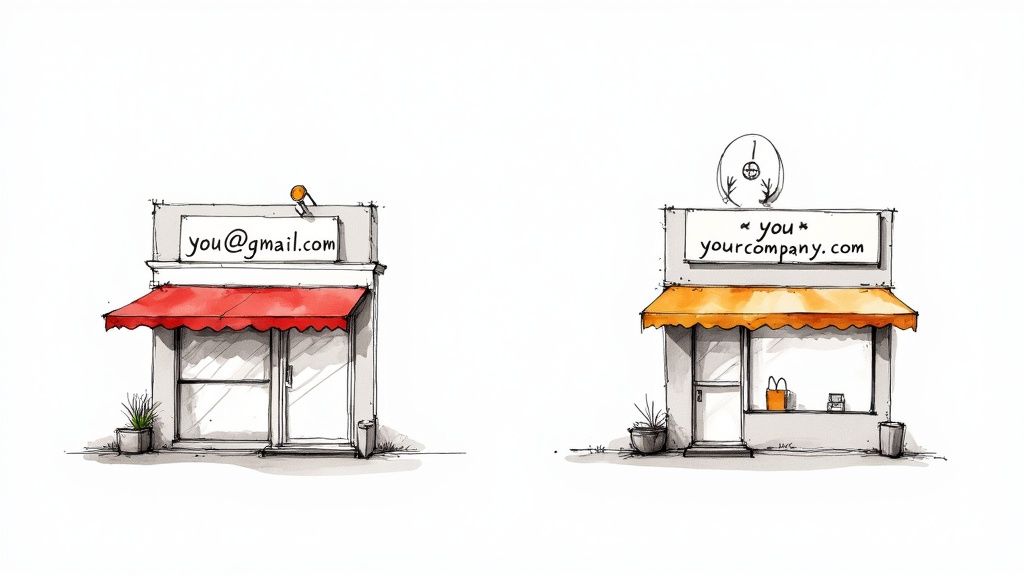
Building Trust and Brand Recognition
First impressions count, big time. When a potential customer gets a message from sales@yourbrand.com, it puts your brand name front and center. That kind of consistency across your business email website and all your communications builds a professional, cohesive image that sticks.
Using one of the best business email services shows you're legitimate, which can lead to higher open rates and better engagement. To dig deeper into this, check out our complete guide on creating a professional email. A good email domain for business reinforces this trust.
Enhanced Security and Control
Let's be honest, free email accounts for business from yahoo or other free business email providers are a magnet for security breaches. They just don't have the heavy-duty protection needed for sensitive business data. Professional email services step up with far superior security features, like:
- Advanced spam and malware filtering to keep your inbox clean and safe.
- Encryption to shield your messages from anyone trying to intercept them.
- Full administrative controls that let you manage every user account, set permissions, and enforce security rules across the whole company.
This kind of control is absolutely critical for protecting your company’s trade secrets and your customers' private information. It's not just for everyday chats, either; a secure, professional email is a must for mastering B2B email marketing that actually gets results and protects your sender reputation. The best paid email services make security a top priority.
The Growing Importance of Business Email
The move toward solid email solutions for business isn't just a fad; it’s happening because the market demands secure, branded ways to communicate. The global business email market was already valued at around USD 33.6 billion in 2025 and is on track to hit an estimated USD 60 billion by 2035.
This massive growth just goes to show why picking the right email domain company is such a critical decision for any business today.
What Really Matters in a Business Email Service?
When you step up from a free email account to a professional one, you're not just getting a new inbox. You're getting a full-blown command center for your company's communication and productivity. The features baked into these services are there to solve real business problems—branding, security, teamwork, and even legal compliance.
This is what separates a standard Gmail account from a corporate email service. It’s the difference between a passive message box and an active business tool. Let's dig into the features that will actually make a difference in your day-to-day operations and help you find the best business mail service.

Custom Domain: Your Digital Handshake
Right off the bat, the most obvious upgrade is using a custom email domain, like contact@yourcompany.com. This is your digital handshake, the foundation of a professional brand. It’s a simple change, but it instantly tells customers you’re a serious, legitimate business with the best professional email domain.
Think about it: a custom domain is non-negotiable for building trust. It's often the first thing a potential client sees, and it immediately separates an established company from a side project. Every reputable business email hosting service offers this as a core function.
Advanced Security and Spam Filtering
Let’s be honest: the internet is a minefield. Business email providers know this and invest a ton into security to shield you from constant threats. Free services offer basic protection, but business-grade security is a different league entirely. This isn't just a "nice-to-have"—it's an absolute must for protecting your company’s (and your clients’) sensitive data.
Here’s what that actually looks like:
- Multi-layered spam filters that are smart enough to catch sophisticated junk before it ever wastes your time.
- Phishing detection that flags sketchy messages trying to trick you into giving up passwords or financial info.
- Two-factor authentication (2FA), which adds a crucial second lock to user accounts to keep intruders out.
- Data encryption that scrambles your emails while they're traveling online and while they're stored on servers, keeping them private.
A single data breach can cripple a small business, costing thousands in damages and destroying the trust you've worked so hard to build. Viewing a secure business email server as an investment is one of the smartest moves you can make.
And when you're the one sending emails, you need to make sure they actually get where they're going. A key factor here is email deliverability, which is all about ensuring your messages land in the inbox, not the spam folder.
Integrated Productivity and Collaboration Tools
Modern email solutions for business are rarely just about email anymore. The best business mail service providers now bundle a whole suite of tools that talk to each other, turning your inbox into a central hub for getting things done.
These all-in-one business email platforms typically include:
- Shared Calendars to schedule meetings with teammates and clients without the endless back-and-forth.
- Video Conferencing like Google Meet or Microsoft Teams, built right into your calendar invites.
- Cloud Storage and Document Editing so you can collaborate on files in real-time and share them effortlessly.
- Team Chat and Messaging for quick questions and updates, keeping your main inbox clean.
Having everything in one place means less time jumping between different apps and more time actually being productive. To get a better handle on how these platforms work, check out our guide on what are ESPs (Email Service Providers).
Archiving, Compliance, and Data Retention
For a lot of industries—like finance, healthcare, or law—keeping a perfect record of all communications isn't just a good idea, it's the law. Paid email services come with powerful archiving and eDiscovery tools that automatically save and index every single email.
This means you can pull up specific conversations in a flash for legal reasons, audits, or internal reviews. You can also set data retention policies to automatically manage how long emails are stored, helping you stay compliant with regulations like GDPR or HIPAA without lifting a finger. You just won't find this level of control with a free email provider.
A professional email service isn't just a tool for sending messages; it's a foundational piece of your business's operational and security framework. To make it easier to see what really counts, here’s a quick summary of the features that deliver the most value.
Essential Features of Business Email Services
Ultimately, choosing a service with these core features provides a secure, professional, and efficient foundation for your company's communications.
Free vs. Paid Email Services: A Clear Comparison
When you're just getting started, every penny counts. That makes a free email account from Yahoo or a standard Gmail address look incredibly appealing. They’re familiar, they’re fast to set up, and best of all, they don’t cost a dime upfront. For a lot of new business owners looking for free business email services, it feels like a no-brainer.
But here’s the thing: relying on a free email plan comes with a lot of hidden costs, and they aren't financial. These "free" services just don't have the professional look or the serious security a real business needs. It's like the difference between setting up a temporary pop-up stand versus building a permanent, branded storefront. The pop-up is cheap, sure, but it doesn't build long-term trust or give you the foundation you need to grow.
Pretty quickly, the cracks in the "free" model start to show. Your email address (yourbusiness@gmail.com) is busy promoting someone else's brand, not yours. You’ll probably have to deal with annoying ads, tiny storage limits, and basically zero customer support when something inevitably goes wrong. This is exactly where paid email services prove their worth.
The True Cost of Free Email
Using a popular free email provider for your business is a risky move. These platforms were built for personal chats and sharing photos, not for the heavy lifting a company needs.
- Weak Brand Perception: An email from a generic domain doesn't exactly scream "professional." It can look cheap and might even get flagged as spam by your customers' email filters. It simply doesn't build the same confidence as an address with your own domain mail service.
- Limited Security: Free services give you the basics, but they’re missing the advanced security, encryption, and admin controls that protect sensitive business information from threats.
- No Real Support: When your email stops working, you're completely on your own. Free platforms don't offer dedicated support, which can be a total nightmare if you're in the middle of a critical conversation with a client.
- Lack of Control: With a free account, you don't really own your data. The provider can change the rules whenever they want, and you have absolutely no say over their policies or potential outages.
A professional email isn't just another expense; it's an investment in your brand's credibility, security, and future. The control and peace of mind you get from the best paid email services are worth far more than the initial cost savings of a free account.
The Clear Advantages of Paid Business Email
Upgrading to a professional email service is a smart, strategic move that pays for itself over and over. These platforms are built specifically to be a reliable business email server, packed with features that support how real companies operate. What you're paying for is a complete toolkit designed for security, branding, and getting work done.
If you're trying to figure out the best way forward, our guide on finding the best email provider for your business takes a much deeper dive into making this crucial decision. In the end, it really comes down to which features will help you hit your professional goals.
To make it even clearer, let's put free and paid services head-to-head.
Free vs. Paid: A Side-by-Side Breakdown
A Look at the Top Business Email Providers
Alright, now that we're clear on what an email service provider is and why you need one, it's time to meet the big players. Ask anyone, "What email service is the best?" and you'll almost always hear two names: Google Workspace (what used to be G Suite) and Microsoft 365. These are two of the biggest email providers in the world.
These aren't just email platforms. They're full-blown productivity ecosystems, each with its own philosophy. Among the top 10 business email service providers, these two are consistently at the top.
Choosing between them usually boils down to how your company already works. Are you a cloud-first startup where everyone is collaborating in real-time? Or are you a more established company that lives and breathes powerful desktop apps? Let's dig into these two giants.
Google Workspace: The Cloud Collaboration King
Google Workspace was practically built for the modern, fast-moving, and collaborative team. Its biggest advantage is its completely seamless, cloud-based world where everything is designed for instant teamwork. If your team spends its days in shared documents, spreadsheets, and presentations, Google’s suite feels incredibly natural.
The Google mail service provider is much more than just a business version of Gmail. It’s a tightly knit system. You can jump from an email to a Google Meet video call or a Google Chat with a single click. The magic of Google Docs, Sheets, and Slides is a huge draw, letting multiple people edit and comment on the same file at the same time—no more version-control nightmares. For a deeper dive, check out our guide comparing Gmail and G Suite.
Best For:
- Startups and small to mid-sized businesses (SMBs) that need speed and real-time collaboration.
- Companies with remote or hybrid teams who need to access files from anywhere, on any device.
- Organizations that love a clean, simple, web-first interface.
Microsoft 365: The Enterprise Powerhouse
Microsoft 365 is the reigning champ for businesses that are deeply rooted in the Windows world. Its power comes from the feature-packed desktop versions of its legendary apps: Word, Excel, PowerPoint, and of course, the incredibly robust email client for business, Outlook. The email providers outlook solution is a go-to for many corporations.
While Microsoft has made huge leaps in cloud collaboration with tools like OneDrive and Teams, its heart and soul is still in its desktop software. If your users need advanced spreadsheet formulas, complex document formatting, or offline access to heavy-duty applications, Microsoft 365 is usually the clear winner. Its deep integration with the Windows OS makes it the default business email system for larger companies with complex IT infrastructures.
Best For:
- Established businesses and large enterprises that depend on the full power of desktop Office apps.
- Companies in industries with heavy compliance and security needs.
- Organizations already invested in the Microsoft ecosystem, which creates a familiar environment for everyone.
While free services have their place, investing in a paid corporate email service is becoming a standard cost of doing business. The market's explosive growth tells the story: the global email hosting sector is expected to hit a market size of USD 56.34 billion between 2025 and 2029. You can learn more about what's driving the email hosting market and its rapid expansion.
Top Business Email Providers Comparison
Sometimes, you just need to see things side-by-side. Both Google and Microsoft offer fantastic, secure, and reliable email services, but they are built for different types of teams. This email providers comparison breaks down their core philosophies and strengths to help you see which one aligns better with your company's workflow.
Ultimately, there's no single "best" answer. The right choice really comes down to how your team gets work done. Do they thrive in a browser-based, collaborative environment, or do they need the unmatched power of traditional desktop software? Answering that question will point you to the right platform.
How to Choose the Right Email Service for Your Needs
Picking the right email service for business can feel like a massive task, but it really doesn't have to be. Now that you've seen what the major players offer, the final step is to turn inward and figure out what your company actually needs to operate smoothly. The best email for business isn’t some universal, one-size-fits-all product; it’s the one that perfectly clicks with your team size, security protocols, data storage needs, and the software you already use every day.
Think of it like buying a vehicle. A solo entrepreneur might just need a zippy scooter to get around town—a basic, secure email account. But a fast-growing team? They need a versatile van that can handle anything—a full productivity suite. Answering a few straightforward questions can cut through the noise and point you directly to the smartest choice among the many options for email accounts.
This handy slider simplifies the very first decision point by zeroing in on collaboration.

As you can see, if real-time, cloud-based teamwork is your number one priority, Google Workspace usually comes out ahead.
Evaluate Your Team Size and Scalability
First up, take a hard look at your current team size. More importantly, think about where you'll be in the next two to three years. A small business email service might feel right today, but what happens when your team doubles in size?
You'll want to find business email providers that offer flexible, tiered pricing. This lets you tack on new users as you grow without the nightmare of migrating your entire system. The goal here is to find a partner that can scale with you, saving you a world of hurt down the road.
Assess Your Security and Compliance Needs
Security is absolutely non-negotiable, but the level of security you need can change dramatically depending on your industry. A creative agency's security worries are a world away from a healthcare provider that handles sensitive patient data.
Ask yourself these questions:
- What kind of data are we dealing with? If you're managing financial, legal, or medical records, you'll need a provider with heavy-duty encryption, data loss prevention (DLP), and compliance certifications like HIPAA or GDPR.
- Do we need to archive emails? Many industries have legal mandates requiring you to keep emails for several years. Make sure your chosen business email hosting service offers plenty of searchable archive space.
- How serious are our threats? Look for features that actively fight back against sophisticated phishing attempts, ransomware, and business email compromise (BEC) attacks.
Choosing a service on price alone is a recipe for disaster. A single security breach can cause financial and reputational damage you can't undo, making a solid investment in a secure email solution for business one of the smartest moves you can make.
Analyze Storage and Data Management
How much digital stuff does your team create? Hitting your storage limit can grind work to a halt, leading to bounced emails and files you can't access. Most paid email services offer a generous amount of storage, but you have to read the fine print.
Look at both mailbox storage (for emails) and cloud storage (for files). A team that’s constantly slinging around large video files or design proofs will need way more cloud storage than a team that mainly uses text documents. Check the per-user limits and find out what it costs to upgrade if you go over. The best business email account gives you enough room for today and tomorrow.
Check for Key Software Integrations
Last but not least, your email doesn't live on an island. The best email companies know this and offer seamless connections to the other tools your business can't live without, from your CRM to your project management platform.
Make a list of your essential apps. Does the email client for business you're eyeing play nicely with them? A system where everything talks to each other creates a smooth workflow, saving tons of time and eliminating the frustration of toggling between a dozen different apps. This is where the ecosystems of Google Workspace and Microsoft 365 really pull ahead, offering thousands of built-in and third-party integrations.
Getting Up and Running With Your Professional Business Email
Making the switch to a proper business email service can sound a bit technical, but you'd be surprised how straightforward it is. The whole thing really boils down to three main steps: grabbing your domain name, picking your email provider, and then simply connecting the two. All the best providers walk you through this, so you definitely don't need to be an IT whiz to get it done.
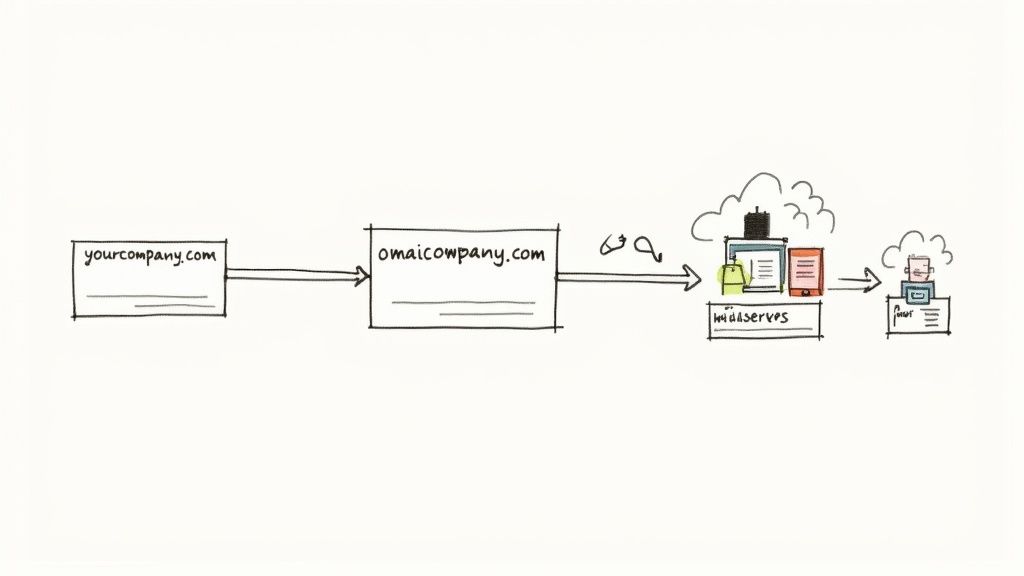
First things first, you need to buy a domain name (like yourcompany.com) from a domain registrar. This becomes your unique address online and is the bedrock of your professional brand. Once that's sorted, you can sign up for a business email hosting service like Google Workspace or Microsoft 365.
Linking Your Domain and Creating Accounts
This is the key part of the setup—making sure your domain points to your new email host. It involves updating a specific setting in your domain registrar’s dashboard. If you're curious about the nitty-gritty, it all comes down to understanding the role of MX records in email delivery. It sounds more complicated than it is; the top providers give you super clear instructions or even have automated wizards that do the heavy lifting for you.
Once everything is connected, you can start creating email accounts for your team. A smart move is to set up a mix of individual and group addresses right away:
- Individual Accounts: Think
jane.doe@yourcompany.com. These are perfect for direct, personal communication. - Group Aliases: Addresses like
support@yourcompany.comorsales@yourcompany.comare great for funneling departmental questions to the right people.
This structure makes your business look sharp and organized from the get-go. Most services also have built-in tools to help you migrate old emails from another provider, so you won't lose any important history.
With daily email traffic expected to rocket past 376 billion by 2025, having a solid, well-organized email system for business isn't just nice—it's essential for keeping up. You can read more about the growth of email communication from Radicati to see just how big the numbers are getting.
Got a few lingering questions before you dive into a business email service? It’s completely normal. Choosing the right platform is a big step, so let’s clear up a few of the most common things people ask.
Can I Use My Existing Domain Name?
Yes, you absolutely can! In fact, that's the whole point.
All the serious email services for business, like Google Workspace and Microsoft 365, are built to work with your domain. During setup, they’ll have you do a quick verification to prove you own yourcompany.com. This is usually a simple process, and it’s how you get those professional, branded email addresses that build trust.
How Difficult Is It to Migrate My Old Emails?
This is a huge worry for a lot of people, but the good news is it's not the nightmare it used to be. The best email companies know you can't just leave years of conversations behind, so they've built tools to make the switch smoother.
Most of the top email providers have their own migration tools that can pull in your old emails, contacts, and even calendar events automatically. While every platform is a little different, they provide step-by-step instructions. If you're moving a whole team, many services even offer dedicated support to make sure nothing gets lost in the transition.
What Is the Difference Between Email Hosting and Web Hosting?
This one trips a lot of people up, but the distinction is pretty important. While they often come bundled from the same company, they are two totally different email services.
Web Hosting: This is the space you rent on a server to store your website’s files—the code, images, and text that people see when they visit your URL.
Email Hosting: This is a dedicated service just for managing your email. It handles all the sending, receiving, and storing of your messages on specialized servers.
Here’s a simple way to think about it: Web hosting is your online storefront. Email hosting is your professional P.O. box and mailroom. They work hand-in-hand but do different jobs.
While your email domain company or web host might offer both, there's a strong case for using a dedicated business email host. They live and breathe email, which means they're laser-focused on things like deliverability, top-tier security, and making sure your emails are always online—things you can't afford to get wrong in business.
Ready to supercharge your outreach and ensure every email counts? PlusVibe offers an AI-powered platform to optimize your cold email campaigns, boost deliverability, and drive engagement. Stop guessing and start connecting. Discover what PlusVibe can do for your business.














































.jpeg)


